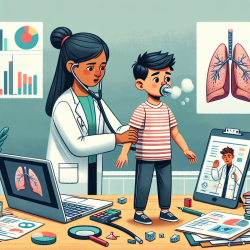Public Health Laboratories (PHLs) are an essential component of our healthcare system, providing critical services that protect the public from health hazards. Unlike commercial clinical laboratories, PHLs offer a wide range of testing services for humans, animals, and environmental samples. They play a pivotal role in disease surveillance, emergency response, and policy development. This blog explores how practitioners can enhance their skills by understanding and implementing the outcomes of recent research on PHLs.
The Unique Functions of Public Health Laboratories
PHLs perform several unique functions that distinguish them from commercial clinical laboratories. These include:
- Disease Prevention and Surveillance: PHLs provide diagnostic and analytical services to monitor infectious diseases and environmental toxicants.
- Data Management: They capture and communicate data essential for public health analysis and decision-making.
- Specialized Testing: PHLs offer reference testing to identify unusual pathogens and verify results not typically performed by private laboratories.
- Environmental Health Support: They analyze environmental samples to identify potential threats and ensure regulatory compliance.
- Emergency Preparedness: PHLs provide rapid laboratory support during disasters as part of state and national preparedness programs.
The Role of Informatics in Public Health Laboratories
The integration of informatics into PHL operations has significantly enhanced their efficiency and effectiveness. Laboratory Information Management Systems (LIMS) have transformed workflows by improving data management, inventory tracking, and patient management. Informatics allows for better data sharing with public health partners, leading to faster responses during outbreaks.
Pioneering practitioners can leverage informatics to improve their practice by:
- Implementing LIMS: Adopt LIMS to streamline laboratory workflows and enhance data accuracy.
- Standardizing Data Exchange: Use standardized formats like HL7® messages for efficient data sharing with partners.
- Participating in Networks: Engage with networks like the Laboratory Response Network (LRN) to stay informed about emerging threats.
The Impact of Research on Practitioner Skills
The research on PHLs highlights the importance of continuous learning and adaptation in the field of public health. Practitioners are encouraged to delve deeper into the study of informatics within PHLs to enhance their capabilities. By understanding the hierarchical organization of PHL systems and their collaborative efforts in policy development, practitioners can contribute more effectively to public health initiatives.
This research underscores the critical role PHLs play in safeguarding public health through innovative testing methods and robust informatics systems. By embracing these insights, practitioners can improve their skills and contribute to a healthier society.










